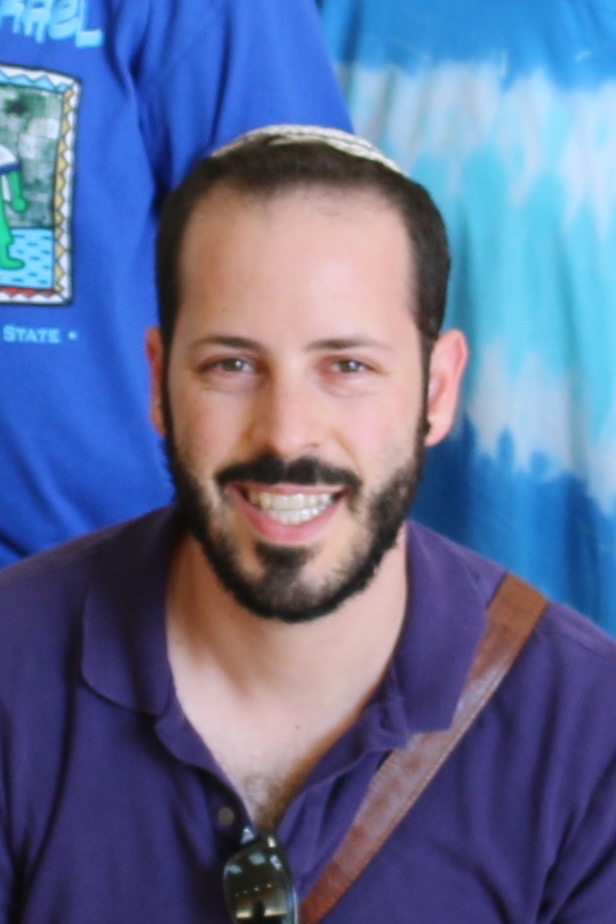With the collective stress of thousands of commuters all trying to get from point A to point B, subway transit in New York can be a little overwhelming. When I’m in the city, I deal with the stress like many fellow riders— I behave as though surrounded by a protective bubble. I notice just enough to navigate the throngs, and I block out the rest.
I recall one morning where I found a door held open for me by another as I exited a station. In response I offered a quick thank you and passed through that door, and it only became clear to me a few minutes later what had happened. A homeless person had been the one to offer me that kindness—perhaps for some human contact, a few coins, or just because. And in the moment where it mattered most, I failed. I did not see a person in need, who was right in front of my face.
In this week’s parashah, Balak, there’s a root that keeps on coming up: ר-א-ה— “to see,” in its many conjugated forms. In this one parashah, “seeing” appears 18 times.
The story of Parashat Balak involves a man, Bilaam, with a gift for seeing that which most do not. We learn later in the Tanakh that Bilaam was an augur, able to foresee the future through natural signs and visions[1], and in this very parashah, we find out from King Balak that Bilaam’s curses and blessings always come to pass[2]. Most significantly, we learn that Bilaam has prophetic capacity, as God actually speaks to him throughout the course of the parashah[3].
At the most necessary of moments Bilaam misses what’s right in front of him. When riding out on his donkey to meet Balak and attempt a curse on the Israelites, Bilaam fails to see to save his own skin.
But God was incensed at his going; so an angel of the Eternal placed himself in his way as an adversary. He was riding on his she-ass, with his two servants alongside, when the ass caught sight of the angel of the Eternal standing in the way, with his drawn sword in his hand. The ass swerved from the road and went into the fields; and Balaam beat the ass to turn her back onto the road (Numbers 22:22–-23).
An angel wielding a giant sword stood in front of Bilaam and his donkey, and Bilaam the seer failed to see him. While Rashi does not hold this against Bilaam, as seeing a divine being would literally blow a person’s mind [4], Isaac Abravanel argues otherwise: the miracle here was not that the donkey perceived the angel, it was that Bilaam did not. A man capable of encountering God should most certainly have seen this adversary in front of him. He was so focused on his own mission, his professional obligation to Balak, or perhaps just wishing to get there already, that the man missed what was right in front of him. It took God opening his eyes [5] for Bilaam to see that his life had been in imminent danger, and his trusted donkey—the one he was so quick to blame—had saved his life.
We have so many opportunities to see, and yet we too are so often caught up in our goals and destinations to notice those around us—some who are ignored to the point where they have become for all intents and purposes invisible. The homeless are one of these groups. They surround us in our homes and workplaces, and unfortunately most of us gird ourselves to not be overwhelmed (or bothered) by their needs. Instead we continue through that door without stopping. But this need not be.
A close friend told me that she had struck up a friendship with a homeless man who spent his days by her school in urban Toronto. Rather than giving him spare change, she once offered to buy him lunch at a local McDonald’s, and for some time after that, they had a weekly date together. In addition to giving him a meal, she gave him her time and attention. She saw him for who he was, and his humanity came through.
Thankfully, these opportunities to make the invisible visible are around us. Organizations like Midnight Run in New York City, or Ve’ahavta’s Mobile Jewish Response to the Homeless in Toronto, facilitate these encounters by doing more than just collecting donations; they take adults and teenagers out in their vans to hand out supplies and actually meet their clients. One Ve’ahavta van participant remarked,
We were thrilled to have the opportunity to have such pleasurable and interesting conversations with some of the homeless people we met through the van program. Recently, we were stopped at a light at one of the van stop locations, and began to chat with one of the van’s clientele we had met previously through the program. It was amazing to be able to interact instead of just “ignore”. It made us feel better about the world and it made us feel that we were equal somehow [6].
This week’s parashah urges us to keep our eyes open and notice those around us. Parashat Balak compels us to do better than Bilaam and really look around. Through doing so, we’ll bring blessing to Israel and the world, and possibly enable someone’s humanity to once again become known.
Notes
[1] Joshua 13:22.
[2] Numbers 22:6 – [Balak:] For I know that he whom you bless is blessed indeed, and he whom you curse is cursed. Tanakh translations adapted from Jewish Publication Society, 1985.
[3] Numbers 22:9–12, 20; 23:4–5.
[4] See Rashi’s commentary on Numbers 22:23
[5] Numbers 22:31.
[6] Rachel Yaegar, MJRH volunteer
Rabbi David Z. Vaisberg is spiritual leader of Temple Emanu-El in Edison, NJ. He lives with his wife, daughter, three cats and a dog in Metuchen, NJ. Check out his blog at davidvaisberg.com.

